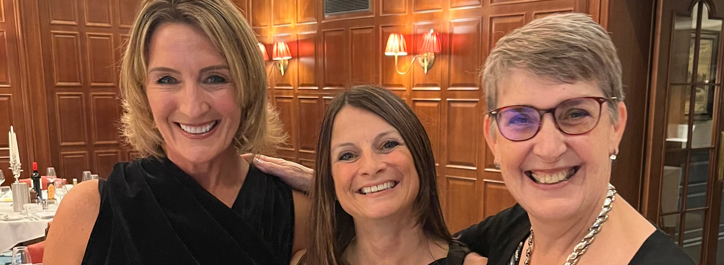How to improve your interview process
We do more than just filling jobs – we also help our clients with any and everything that’s related to recruitment. And one of the things they often ask our consultants is how to make interview processes more efficient. So here are our top tips for interviews that stand out from the crowd for all the right reasons.
The employment market is probably more competitive now than it’s ever been. And one way to make sure you attract the very best talent is to give your potential employees a great hiring experience. The two most important words to keep in mind here are: speed and communication.
Neither of these are particularly ground-breaking – but they could be the difference between quickly finding the right person for a role, and getting stuck in a long and frustrating recruitment process.
Let’s have a look at what those mean in real life.
SPEED
Tip 1: Keep things short and sweet
Only do two interviews per person – three at the most. It can take several weeks to get these booked in and carry them out, so the less you can do the better. If you have three interviews and your competitor has two, they’ll be able to get an offer on the table much more quickly than you can.
Next, try to keep the decision makers to a minimum. It’s natural to have lots of interested parties when it comes to hiring people. But that doesn’t mean they all need to be involved in the process. For a start, co-ordinating multiple diaries for interview panels is only ever going to drag out the process. And having to face four or five people could also leave your applicant feeling overwhelmed. So only involve the people who really need to be there – for example the person’s potential manager and a team member.
Tip 2: Don’t be afraid to use technology
The pandemic forced us all to get to grips with video calling, and also helped us understand the benefits. And carrying out first interviews over video can be a real time-saver for everyone involved. If you then want to do a face-to-face second interview, feel free. But don’t be afraid to do the entire process over video if it makes things quicker. It’s much easier to schedule in a couple of 45-minute video calls with someone than getting them to come to your site – they don’t have to travel, organise childcare, take a day off from their current job, etc, etc.
You could also use digital tools to set up and sign contracts and other documents online. These massively speed up the paperwork-part of the process, and mean there’s no risk of anything getting lost in the post.
Tip 3: Cut out formal written testing
Obviously, some roles do need a written test. But if it isn’t vital to yours, think about getting rid of it. Why? First, it makes your interviews longer. And secondly, people react and perform differently in test conditions to how they would normally. In fact, you’re more likely to get negative results, and some job seekers won’t even bother with an interview if they see there’s a test. So you could miss out on the best people.
It’s far better to make sure you’re asking competency-based questions in your interviews. These are open questions that focus on finding out about the specific skills someone has by asking how they’d behave in a certain situation. (You can find out more about competency-based interview questions in this article.)
Communication
Tip 1: Always keep in touch
These days, it’s easier than ever to keep in touch with people with email or instant messages. So there’s no excuse for not keeping applicants informed of their progress. If there are delays at your end, let them know. Acknowledge receipt of applications, and tell if they haven’t been successful.
If you want to make someone an offer, do it as soon as you can after the interview. If you do that over the phone, make sure it’s not too long before you send out the paperwork either (this is where those tech tools we mentioned above really come into their own). Dragging your heels over this could mean your ideal candidate has to delay handing in their notice or, even worse, gets a better offer from elsewhere before they’ve signed on your dotted line.
Tip 2: Take control of your comms
Make sure any communication you have with applicants is clear throughout the process. Quickly thanking them by email when they apply means they won’t worry that you haven’t got their application. If you invite someone for an interview, make sure they know who they’re going to be meeting, details of the video call or where they’re going if it’s face-to-face, and what the next steps are (if that applies).
Similarly, if someone isn’t successful, let them know quickly and efficiently. If you have the time, giving them some constructive feedback on why they didn’t get the job can be really helpful.
Done well, great communication can make you really memorable, even to people who don’t get a job. Doing it poorly will also make you memorable, but probably not for the reasons you want.
Tip 3: Remember that the offer isn’t the end
You’ve offered someone a job and they’ve accepted. Great. But that doesn’t mean you can forget them until they start. Make sure you keep in touch with them in the days, weeks or months before their first day. Working a notice period can feel lonely – so knowing they have something exciting waiting at the other end can be really reassuring (and help them choose you if their existing employer decides to make a counteroffer).
If you have any work social events before they start, think about inviting them. Or you could organise a lunch so they can meet their new team members in a more relaxed setting.
Bonus tip: Don’t forget that you’re dealing with real people
Remember that each and every applicant for a job is a real person. Try to put yourself in their shoes and think about how you’d like to be treated. Don’t leave them in limbo. And if they contact you, reply to them within hours, not days – because if you don’t, someone else will.
Need some help?
If you’d like to make your interview process more efficient, please get in touch – we’ll be happy to help.



